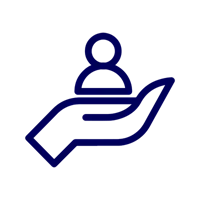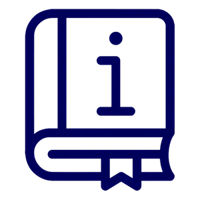
Susannah Salter
Research assistant (molecular biology) at University of Cambridge
Nobody ever really finishes learning (not even the people who seem to know everything).
So approach new tasks with an open mind and build up diverse skills - that is a great foundation for a career in scientific research!
About Susannah...
Who am I?
"I got my strongest match for COORDINATOR. I think that is a fair result! I like being organised and getting things done. Part of my job is to provide support to other members of my team, which means that I need to share practical skills. I work in academia (which is non-profit research), where staff move around quite often. However as a long-term team member, I am in a position to provide continuity - I find it very satisfying to have this role. I also matched INFLUENCER and TRAINER because I am quite diplomatic and consider different people's needs and points of view. I think it is important to have this mindset, especially in biological sciences where we do not just work with similar scientists but also members of the public, healthcare professionals, people from all over the world. I was surprised that I did not match more strongly with INVESTIGATOR, as independent research is a big part of my job as well! I really love to solve puzzles and problems. "
What do I do?
"I am a molecular biologist, specifically I work with bacteria and analyse their DNA. Half of my work is in a laboratory (doing my own experiments and helping team members with theirs) and the other half is computer based analysis. I write scientific papers about my finished projects and also travel to conferences around the world to present the results. My job is great for several reasons... * I like problem solving, and it is exciting to research things that nobody else knows about. * I also like things to be organised which is absolutely essential for designing my own experiments, and for supporting my colleagues. * I enjoy being able to share my expertise with other scientists and to engage with really interesting projects! The starting salary for my role varies a lot based on where you are - £20-25k is a reasonable estimate. "
How did I get here?
"I took a slightly weird route to get to where I am. I originally thought I wanted to be an archaeologist, but while working with skeletons I realised that the thing I was REALLY passionate about was human health and disease. I graduated from university with a degree in Anthropology & Archaeology, and after a while working for a temp agency I had saved enough money to apply for a further qualification in molecular biology so that I could pursue my dream job.It was during my part time MSc course that I first heard about the Sanger Institute. I was so inspired by this place dedicated to DNA sequencing on an awesome scale, I was determined to get a job there! Halfway through my studies I successfully applied for a technician job, and I stayed on after getting my qualification. In the end I worked at Sanger for 12 years, most of that with the Pathogen Genomics team, where I learned so many valuable laboratory skills. Finally I transferred to the University of Cambridge where I am now. I am a Research Assistant with a strong track record of independent research and publication, and I love my job! "
The life I live
"I don't think of myself as a very sporty person, but I do spend a lot of time doing a martial art called capoeira. It involves lots of acrobatic moves and music, and has led me to learn Brazilian Portuguese too! "
My typical day
"A day at work can be quite varied.... but at the moment I am spending most of my time working on a new species of bacteria that lives up people's noses. So this would be a typical day: First I get to the office, and check for emails from my collaborators. They are all over the world in different timezones, so I've often received messages in the middle of the night! I really enjoy discussing our progress with them and also trying to approach new people to join our project. Some of my collaborators are chatty like me, and we bounce ideas off each other about the project. Next I will plan my labwork/analysis for the day. I make a lot of lists and always have bits of paper on my desk; I find that it helps to get my head around a problem by grappling with it on paper. I often have morning meetings/seminars as well, either with my team or the wider department. After meetings I head into the lab, which is in a secure building because some of the bacteria we study are dangerous. I could be growing bacteria and working in a special safety cabinet, or I could be extracting DNA for sequencing... The laboratory is crammed with equipment and we share it with other teams that work on fascinating and diverse projects. In the lab we have to wear PPE (safety specs, gloves, lab coats) and wash our hands frequently. When my labwork is done I can go back to the office to look at some data. Often I end up working through a lot of microbiome data - that is DNA sequences from all the bacteria living together in a sample. Before I head home I make sure that I have recorded the day's activities/results in my lab book and made a note of urgent things to do tomorrow (otherwise I might forget something important!)As the project progresses we will move on from experiments to writing up the results with our collaborators. Eventually we hope to have a complete story about this bacterium that will be useful for different researchers and healthcare workers, and will allow us to understand how it causes disease and how it behaves. "
My qualifications
"My qualifications did not follow a very direct route! At secondary school I thought archaeology sounded really interesting, and I found out that I would need to go to university to do that as a job. I tried to choose A-levels that would be useful for archaeology (a mix of science and humanities) but ended up doing Maths too because I had an amazing supportive teacher - and I realised that the problem solving aspect really appealed to me. * A-levels (Human Biology, Classical Civilisations, Maths) and AS-levels (Latin, Physics)I got good marks in Biology A-level and decent grades in my other subjects, and went to university to study archaeology. * BA Anthropology and ArchaeologyAfter I graduated I took a year doing office jobs to save up some money. It was enough time for me to figure out a new plan: to get a further qualification in biological science! I was very lucky to enroll on a part time MSc with the support of the course coordinator, who was sympathetic to my plan to change professional direction. * MSc Molecular Biology of Infectious DiseasesI am now planning to apply for a \"PhD by publication\" based on my published work. A PhD is not required for my current job, but it will give me more freedom in future if I want to move to another academic research position. "
Susannah's Photos








